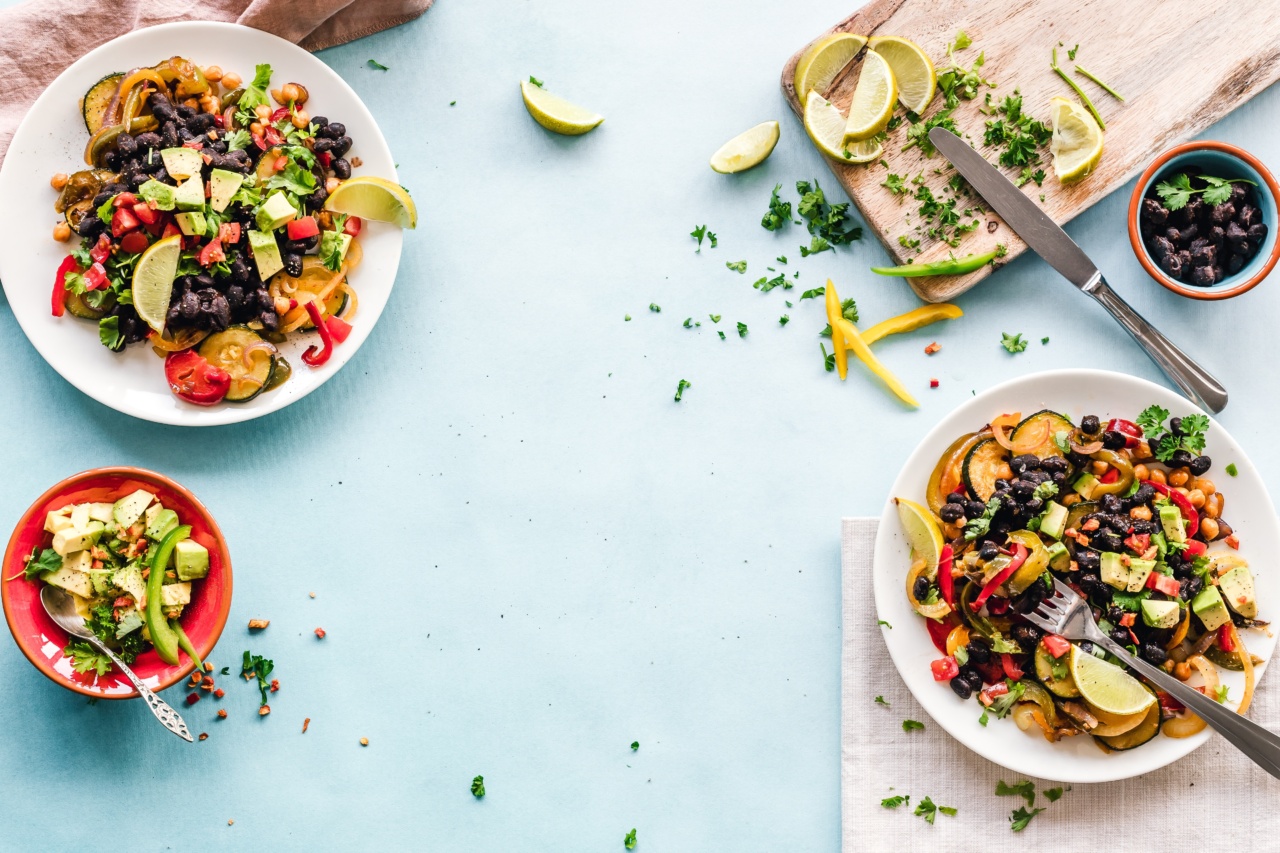Are you considering making the switch to a vegetarian lifestyle? Embarking on this new dietary path can have numerous health benefits, reduce your carbon footprint, and promote ethical eating habits.
However, before you make the transition, it’s essential to educate yourself about the ins and outs of vegetarianism. This comprehensive guide will provide all the necessary information you need to know before going vegetarian.
1. What is a Vegetarian Diet?
A vegetarian diet is a plant-based dietary practice that excludes the consumption of meat, poultry, seafood, and sometimes, even dairy and eggs.
Instead, vegetarians rely on plant-based foods such as fruits, vegetables, whole grains, legumes, nuts, and seeds.
2. Types of Vegetarian Diets
There are several variations of vegetarian diets:.
a) Lacto-ovo vegetarian: This is the most common type of vegetarian diet, which allows the consumption of dairy products and eggs while avoiding meat, poultry, and seafood.
b) Lacto-vegetarian: Lacto-vegetarians consume dairy products but exclude eggs, meat, poultry, and seafood.
c) Ovo-vegetarian: Ovo-vegetarians include eggs in their diet but avoid meat, poultry, seafood, and dairy products.
d) Vegan: Vegans adhere to a strict plant-based diet, excluding all animal products, including meat, dairy, eggs, and even honey.
3. Health Benefits of a Vegetarian Diet
Adopting a vegetarian diet can have numerous health benefits:.
a) Lower Risk of Chronic Diseases: Vegetarian diets can reduce the risk of heart disease, high blood pressure, type 2 diabetes, and certain types of cancer.
b) Weight Management: Vegetarian diets are often associated with lower body weight, body mass index (BMI), and lower rates of obesity.
c) Improved Digestive Health: Plant-based diets, rich in fiber, can regulate bowel movements, prevent constipation, and promote a healthier gut.
d) Nutritional Benefits: A well-planned vegetarian diet can provide all the necessary nutrients, including vitamins, minerals, and antioxidants.
4. Common Nutrient Considerations
While a vegetarian diet can be nutritionally adequate, there are some key nutrients that require attention:.
a) Protein: Plant-based protein sources such as legumes, tofu, tempeh, seitan, and quinoa are excellent substitutes for meat.
b) Vitamin B12: Vitamin B12 is primarily found in animal products, so vegetarians may need to consider fortified foods or supplements.
c) Iron: Plant-based iron sources like spinach, lentils, beans, and fortified cereals can meet iron needs. Consuming vitamin C-rich foods alongside non-heme iron sources enhances absorption.
d) Calcium: Dairy products are rich in calcium, so lacto-vegetarians have an advantage. However, vegans can obtain calcium from tofu, fortified non-dairy milk, leafy greens, and calcium-set tofu.
5. Meal Planning and Recipe Ideas
Mastering meal planning is crucial for a successful transition to a vegetarian diet. Here are some recipe ideas to get you started:.
a) Breakfast: Try a veggie-packed omelet with mushrooms, peppers, and spinach, or a protein-rich smoothie with fruits, leafy greens, and plant-based protein powder.
b) Lunch: Enjoy a hearty salad with mixed greens, chickpeas, cherry tomatoes, and avocado, or a nourishing bowl of vegetable stir-fry with tofu or tempeh.
c) Dinner: Savor a delicious plate of whole-wheat pasta with marinara sauce, topped with sautéed vegetables and vegan meatballs. Alternatively, relish a homemade vegetable curry with brown rice.
d) Snacks: Keep energy levels up with convenient and healthy snacks like hummus with carrot sticks, mixed nuts, or fresh fruit.
6. Eating Out and Social Situations
When dining out or attending social events, it’s essential to navigate vegetarian options. Here are some tips:.
a) Research Restaurants: Prior to eating out, look for vegetarian-friendly restaurants or menus to ensure you have suitable options.
b) Communicate Your Needs: When attending social events or dining at someone’s house, let them know about your dietary preferences in advance, so alternative options can be arranged if necessary.
c) Be Adventurous: Embrace new flavors and cuisines by exploring vegetarian versions of traditional dishes.
7. Dealing with Nutritional Deficiencies
If you feel your vegetarian diet may not be meeting your nutritional needs, consider the following measures:.
a) Consult a Registered Dietitian: A dietitian can assess your diet, identify potential deficiencies, and provide personalized recommendations.
b) Supplements: In some cases, supplements may be necessary, particularly for nutrients like vitamin B12, omega-3 fatty acids, or iron.
8. Overcoming Social and Emotional Challenges
Transitioning to a vegetarian lifestyle can present social and emotional challenges:.
a) Education: Be knowledgeable about the reasons behind your dietary choice to confidently answer questions and address concerns.
b) Support: Seek support from like-minded individuals, whether through vegetarian communities, online forums, or local meetup groups.
c) Flexibility: Accept that not all situations may cater to your dietary needs, and be prepared to make compromises when necessary.
9. Environmental Impact of Vegetarianism
Choosing a vegetarian diet can significantly reduce your environmental footprint:.
a) Reduced Greenhouse Gas Emissions: Livestock farming is a major contributor to greenhouse gas emissions. By avoiding meat, you contribute to combating climate change.
b) Conservation of Resources: Producing plant-based foods requires fewer resources like water and land as compared to animal-based agriculture.
10. Ethics and Animal Welfare
Many individuals adopt a vegetarian lifestyle due to concerns about animal welfare:.
a) Cruelty-Free Choice: By avoiding meat, you contribute to reducing the demand for factory farming, which often involves cruel conditions for animals.
b) Support for Sustainable Practices: Choosing plant-based options supports sustainable farming practices that prioritize animal welfare and ethical treatment.
Conclusion
Transitioning to a vegetarian lifestyle can be incredibly rewarding, benefiting your health, the environment, and animal welfare.
Familiarize yourself with the various types of vegetarian diets, ensure proper nutrient intake, and embrace meal planning and recipe ideas. Remember to navigate social situations, seek support, and be flexible along the way. By making the switch, you’ll embark on a fulfilling journey of compassionate and sustainable living.






























